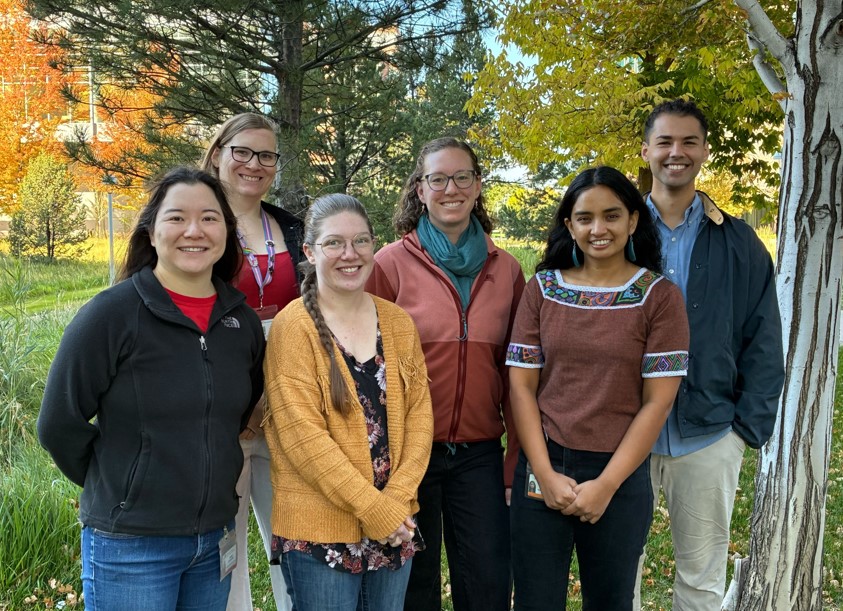Allison McClure, PhD
Assistant Professor

Education:
B.A., St. Olaf CollegePh.D., Duke University
Postdoc, The Francis Crick Institute
Contact Information:
Email: [email protected]
Phone: 303-724-4725
Each time a cell divides, it has to replicate all of its DNA. Generally, this takes place in the S phase of the cell cycle, and then during Mitosis, a cell splits into two cells, each with a full genome. But it turns out that cells can and frequently do synthesize DNA during Mitosis. How do cells finish replicating their genomes during Mitosis? Mitosis is a very different environment than S phase. How does this impact the DNA replication machinery? How does this impact the structure of the DNA being replicated? And what is the outcome - how do cells make sure their genomes are faithfully duplicated with this mitotic-style replication? We use the versatile and powerful biochemical reconstitution of DNA replication as our main tool, and we complement it with the classic power of yeast genetics. These two approaches inform one another and help us think about both fine mechanistic details as well as integrating our ideas in a physiological context.

| Picture | First Name | Last Name | Job Title | |
 | Andrea | MacFadden | Senior Professional Research Assistant | [email protected] |
 | Kyle | Pineiro | MAPS | [email protected] |
.tmb-image350.jpg?Culture=en&sfvrsn=56f9c7b4_1) | Natasia | Paukovich | Postdoc | [email protected] |
 | Shania | Smith | Professional Research Assistant | [email protected] |
 | Sudikchya | Shrestha | Postdoctoral Scholar | [email protected] |
| Sam | Greenfield | Graduate Student | [email protected] |